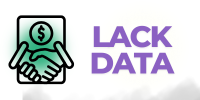Users should know Critical topic for anyone concerned about privacy and surveillance in the digital age. As a popular messaging platform known for its focus on security and user privacy, Telegram has positioned itself as a defender of user data against intrusive governmental oversight. However, despite its commitment to privacy, Telegram operates within a complex global environment where governments often demand access to user data for law enforcement, national security, or regulatory reasons. Understanding how Telegram handles these requests is essential for users who want to safeguard their information while using the app.
Types of Data Telegram Stores and Shares
To grasp how Telegram deals with telegram data government requests, users should first understand the types of data the platform stores. Telegram primarily holds two categories of data: message content and metadata. Message content in Telegram’s “cloud chats” is stored encrypted on Telegram’s servers, but not end-to-end encrypted by default, which means Telegram technically has access to these messages. On the other hand, “Secret Chats” are end-to-end encrypted, so only the communicating parties can access the handling objections in real-time content, and Telegram cannot decrypt these messages. Metadata such as IP addresses, timestamps, and phone numbers are also stored. Telegram’s policy indicates it does not share message content with governments, but may comply with users should know requests for metadata or limited data in certain cases.
Telegram’s Official Stance on Government Requests
Telegram has consistently maintained a strong stance on protecting user privacy in the face of government demands. The company claims it does not willingly book your list provide user data to any government without a valid legal basis and jurisdictional authority. Pavel Durov, Telegram’s founder, has publicly resisted requests that compromise user privacy, stating that Telegram has not handed over any meaningful user data despite receiving numerous government requests worldwide. The company publishes transparency reports that provide insight into the number and nature of requests received, emphasizing its commitment to fight overreach and protect users whenever possible.
Legal Jurisdiction and Its Impact on Data Requests
One important factor users should know about Telegram data and government requests is the company’s complex legal jurisdiction. Telegram’s servers and legal entities are spread across multiple countries, with no centralized headquarters. This decentralized structure complicates government attempts to access data because requests must comply with the relevant jurisdiction’s laws and treaties. For example, requests from one country may not be enforceable in another where Telegram’s servers or entities are located. This geographic distribution gives Telegram leverage to reject or delay requests that fall outside its operational reach, adding a layer of protection for users’ data.
Case Studies of Government Interactions
Several high-profile cases demonstrate how Telegram has navigated government requests. In countries with authoritarian regimes or strict censorship laws. Telegram has faced bans or attempted restrictions. Because of its refusal to provide backdoor access to user data. For example. Telegram was banned temporarily in Russia and Iran due to its resistance to share encryption keys or decrypt messages. Conversely, in some democratic countries. Telegram cooperates within legal frameworks to respond to serious criminal investigations. But only to the extent allowed by law and company policy. These cases highlight the tension between. User users should know privacy and government demands. Underscoring the importance of understanding Telegram’s role in these dynamics.
User Recommendations for Privacy Protection
Given the realities of government data requests, users concerned about privacy should take active steps to protect their information on Telegram. Utilizing “Secret Chats” is one of the best ways to ensure message content remains private and inaccessible even to Telegram itself. Users should also be cautious about sharing sensitive personal information over cloud chats that are stored on Telegram’s servers. Regularly updating privacy settings to limit who can see personal details and using features such as two-step verification can further enhance account security. Being aware of the legal environment in their country and potential government surveillance practices helps users make informed decisions about their messaging habits.
The Future of Telegram and Government Data Requests
Looking ahead will continue to evolve alongside global privacy regulations and technological developments. As governments intensify their scrutiny of digital platforms. Telegram may face increased pressure to comply. With data demands or face legal consequences. At the same time. The app is likely to invest more in advanced encryption technologies. User control features, and transparency efforts to maintain its. Privacy-first reputation. Users should stay informed about changes in Telegram’s policies and global data laws to better understand how. Their information is protected or exposed in the future digital landscape. This ongoing balance between privacy and regulation. Will shape the future of secure communication on Telegram.
